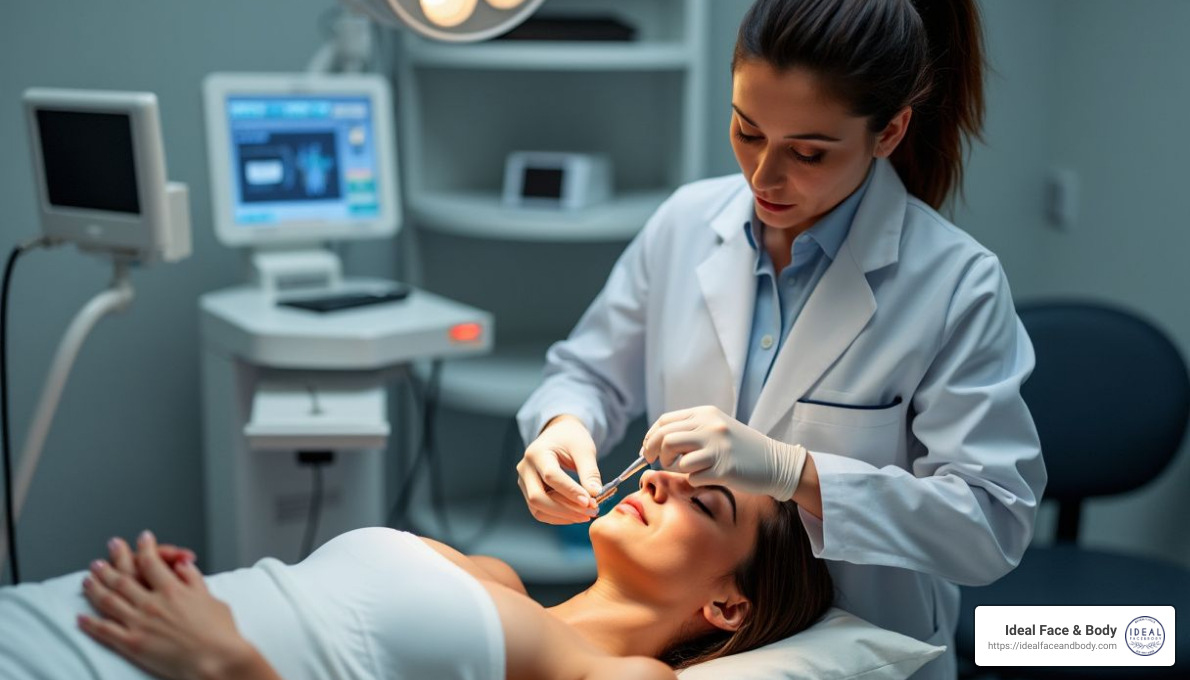
20 Nov The Importance of Regular Check-Ups with Your Skin Doctor
Your skin is the body’s largest organ, and taking care of it involves more than just daily cleansing and moisturizing. Professional oversight from a skin doctor can play a part in your long-term skin health. Scheduling regular appointments offers a proactive way to monitor your skin, address any changes, and maintain its well-being. These visits provide an opportunity for a trained professional to perform a thorough examination.
What Do Skin Checks Reveal?
A full-body skin check allows a skin doctor to observe your skin from head to toe. This comprehensive review can identify various skin attributes and changes that might otherwise go unnoticed. The process is straightforward and gives you a baseline understanding of your skin’s current state. A professional can spot subtle differences in moles, freckles, and other growths.
A doctor looks for specific characteristics during an examination. These may include:
- Changes in the size, shape, or color of moles.
- New spots or growths on the skin.
- Areas of unusual dryness, scaling, or irritation.
- Signs of sun damage.
Following the examination, your skin doctor will discuss the findings with you. This conversation provides clarity and helps you understand what was observed. You can also ask questions about your skin type and receive personalized advice on caring for it properly, helping you make informed decisions about your daily routine.
Which Conditions Need Monitoring?
Some skin conditions benefit from regular observation by a dermatologist. Regular monitoring helps track the progression of certain issues and allows for timely adjustments to your care plan. People with a history of specific skin concerns may find these check-ups particularly helpful.
Certain conditions and risk factors warrant more frequent attention. A skin doctor can help manage and track these items:
- Atypical Moles: Moles with irregular shapes, borders, or colors may require regular follow-up to monitor for any evolution.
- Personal or Family History of Skin Cancer: Individuals with a past diagnosis of skin cancer or a close relative who has had it are often advised to have more frequent screenings.
- Numerous Moles: Having a large number of moles can make self-monitoring more difficult, and a professional eye can help systematically track them.
- Sun Exposure: A history of significant sun exposure or sunburns, especially during childhood, is a factor that a doctor will note for ongoing observation.
Tracking these conditions is a collaborative effort between you and your skin doctor. By staying on top of scheduled appointments, you allow your doctor to build a complete, ongoing record of your skin’s health, which may serve as a useful reference over time.
How Often Should You Visit?
The recommended frequency for visiting a skin doctor varies from person to person. A general guideline for many adults is to schedule a professional skin examination once a year. This annual check-up serves as a good baseline for most individuals without specific risk factors. It allows a doctor to note any new developments since your last visit.
Your personal health history and risk profile will ultimately determine the ideal schedule for you. If you have a background of skin cancer, numerous atypical moles, or a suppressed immune system, your skin doctor might suggest more frequent visits, such as every three to six months. Conversely, younger individuals with no significant risk factors may not need an annual check. You can discuss the appropriate interval with your provider to create a plan that fits your specific needs.
Visit a Skin Doctor
Scheduling regular appointments with a doctor is a practical step toward maintaining skin health. These visits provide a detailed assessment of your skin’s condition and help you track changes over time. A professional can offer personalized guidance and address any questions you may have about your skin. To take the next step, find a qualified skin doctor in your area and book a consultation to establish a routine for professional skin care.

No Comments